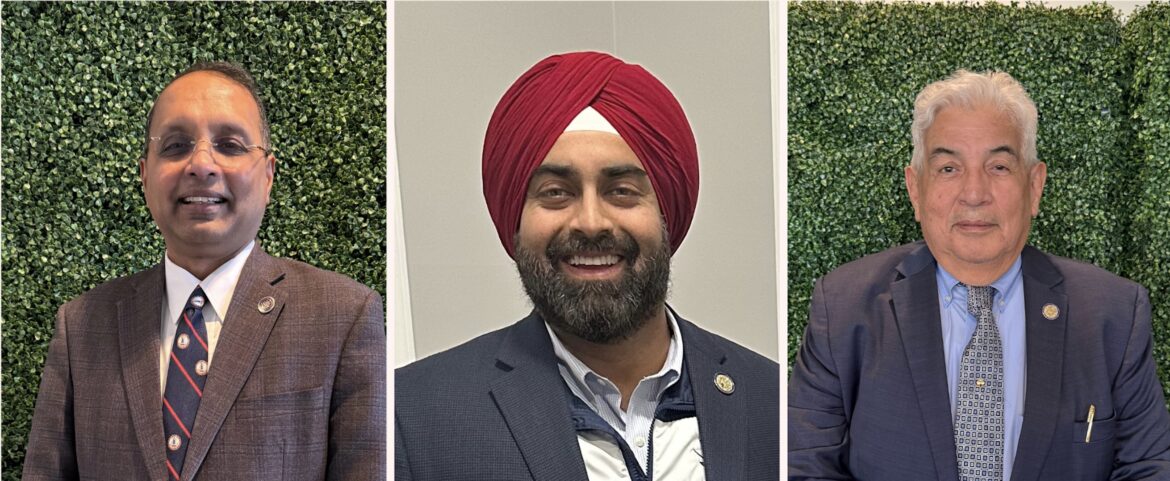Virginia lawmakers, representing Loudoun County, are raising strong objections to the proposed Golden to Mars (GTM) high-voltage transmission lines in the County, warning that the project would impose a “disproportionate burden” on local residents.
In an August 25, 2025, letter to State Corporation Commission (SCC) Chair Samuel T. Towell, and Commissioners Jehmal Hudson and Kelsey Bagot, Senator Kannan Srinivasan, Delegate JJ Singh, and Delegate Marty Martinez expressed concerns about the proposed routes, which would run transmission lines through residential neighborhoods along Loudoun County Parkway and surrounding areas.
The lawmakers emphasized that Loudoun residents deserve transparent, data-driven answers to their questions about health risks, “declining property values, noise pollution, environmental damage,” and other long-term impacts.
“We, the undersigned, write to express our deep concerns regarding the proposed Golden to Mars (GTM) transmission lines in Loudoun County. The residents in our communities, who are not responsible for the significant increase in power demand, stand to bear the significant burden of it, unless alternatives are given serious and immediate consideration,” the letter stated.
The letter pointed to findings in the December 2024 Joint Legislative Audit and Review Committee (JLARC) study, which outlined Northern Virginia’s unprecedented electricity demand, driven primarily by the rapid expansion of data centers.
While data centers provide jobs and generate tax revenue, they also consume extraordinary amounts of electricity. According to JLARC, a single facility can use the equivalent power of 4,500 to 50,000 homes.
Lawmakers argued that the consequences of this energy demand should not fall primarily on Loudoun families.
“It is unacceptable that the burden of meeting these large-scale power demands falls disproportionately on the shoulders of our residents,” the letter added. “In particular, those along Loudoun County Parkway and neighboring communities are severely impacted. These hardworking families have made significant investments in their homes, neighborhoods, and communities, and actively contribute to the rich tapestry that is Loudoun County.”
“I’m deeply concerned that any above-ground route jeopardizes Loudoun families’ health, safety, and property values,” said Senator Srinivasan. “By prioritizing undergrounding, we can protect both our schools and our communities, and I remain committed to working with all stakeholders to achieve a solution that truly puts Loudoun residents first.”
“We need to put our residents first. That means pursuing undergrounding, and all other options to minimize the burden on our communities,” said Delegate Singh.
“I will continue to stand with Loudoun families to ensure their concerns are taken seriously and that the State Corporation Commission fully considers the impact on our communities before moving forward,” said Delegate Martinez.
Acknowledging that the SCC’s decision to hold two in-person public hearings next month, the lawmakers commended the move as an important step toward ensuring that community voices are heard.
“We must take their concerns seriously as they face numerous harms, both temporary and long-term, including health risks, diminished views, declining property values, noise pollution, restricted access and land use limitations, and environmental damage. They deserve better,” the letter stated.
The lawmakers urged SCC officials to carefully evaluate the application for a Certificate of Public Convenience and Necessity for GTM transmission line project, calling for:
- A full review of the identified violations of North American Electric Reliability Corporation (NERC) Reliability Standards and PJM requirements, as well as an assessment of the project’s true necessity.
- An independent study on the feasibility of undergrounding the 500 kV transmission lines, noting that such projects have been successfully implemented elsewhere.
- Prioritization of routes that minimize disruption to residential neighborhoods, schools, and public spaces, including consideration of financial impacts.
- Examination of alternative routes, including underground options, proposed by case respondents.
- Incorporation of all available, reputable data on health risks, property values, noise, land use restrictions, and environmental consequences in determining the most responsible path forward.






